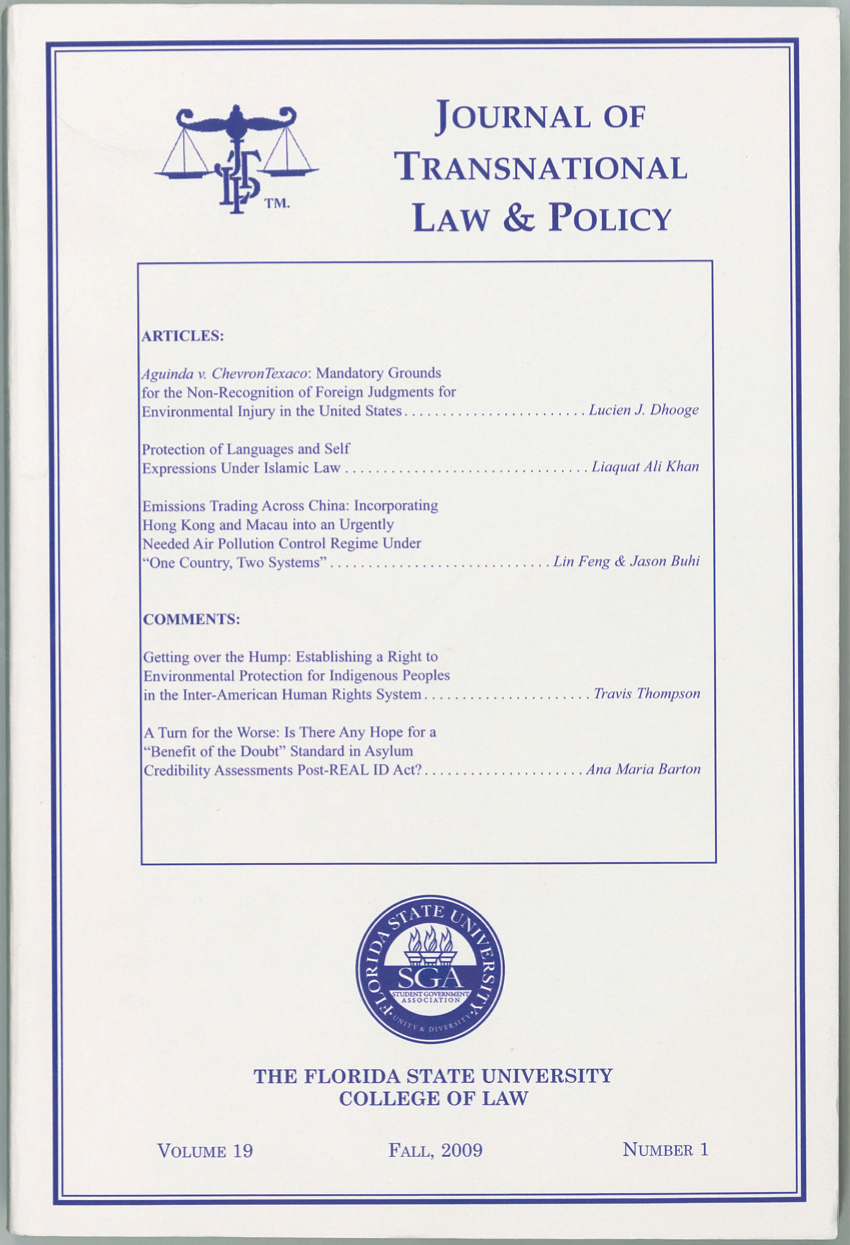 Dr Lin Feng
Dr Lin Feng
It is acknowledged that there are two sources of air pollution in Hong Kong: local and external (Pearl River Delta), in which the
latter being the primary source. Hong Kong’s air pollution is a regional issue rather than a local
issue. The resolution of this issue is further complicated by the fact that Hong Kong has
a distinct legal system from the Mainland, and the legislation governing air pollution
control is different between Hong Kong and the Mainland. The HKSAR Government has
signed agreements with Guangdong Province on reduction of air pollutants, but these
agreements are not enforceable.
This project first conducts a thorough review of existing mechanisms on cross-border air
pollution control to identify their defects, and argues that lack of a legal mechanism to
regulate trans-regional affairs between Hong Kong SAR and other parts of China, the
small number of polluters in pool of the existing emission trading system (ETS), voluntariness
of the polluters to join the ETS, the exclusion of Macau, and the lack of a dispute resolution
mechanism are the core reasons why the existing ETS between Hong Kong and
Guangdong failed to work.
The project then uses various research methodologies such as literature review,
case study, interview, and comparative study to find a solution to cross-border pollution
problem. Specifically speaking, Jiangsu Province has been chosen as a case to
discuss the lessons to be learned from China’s pilot ETS. A comparative study has been
conducted of other leading ETS regimes in the world, namely the US Acid Rain
Programme, and European ETS this is to identify the fundamental mechanisms an ETS must possess
in order to be effective and also to analyze the practical difficulties and shortcomings
encountered by them.
|
|
Through comparative study and case study, this research comes to the view that
a successful ETS must contain three main mechanisms, including a firm overall cap,
a sustainable emissions allowance market, and robust monitoring and enforcement
institutions capable of ensuring compliance. By applying such findings to address
cross-border air pollution problem between Hong Kong and the Mainland under the
unique constitutional matrix of one country, two systems, this research concludes by
making three specific proposals. First, a super-national panel must be established and authorized to harmonize and oversee the cap-fixing,
market maintenance, compliance monitoring, and enforcement functions across three
jurisdictions, i.e. Hong Kong SAR, Macau SAR and mainland China. Such an environmental
panel would help to further integrate the three legal systems by serving as a portal
through which ongoing implementation efforts can be directly undertaken. Second, a
permanent trans-boundary forum should be established to ensure flexibility and ongoing
cooperation among the three jurisdictions as implementation proceeds. Third,
multi-party arbitration mechanism should be established and used in the event of irreconcilable or
unforeseen legal differences between the three systems.
If all three proposals above could be made to co-exist and prosper within a successful
public law framework, the resulting intercourse would not only provide a feasible solution
to the cross-border air pollution problem between Hong Kong SAR and the
Mainland, but also provide a model of international environmental cooperation to the world.

One sample publication out of the project
Dr Lin Feng
School of Law
City University of Hong Kong
lwlin@cityu.edu.hk
|
